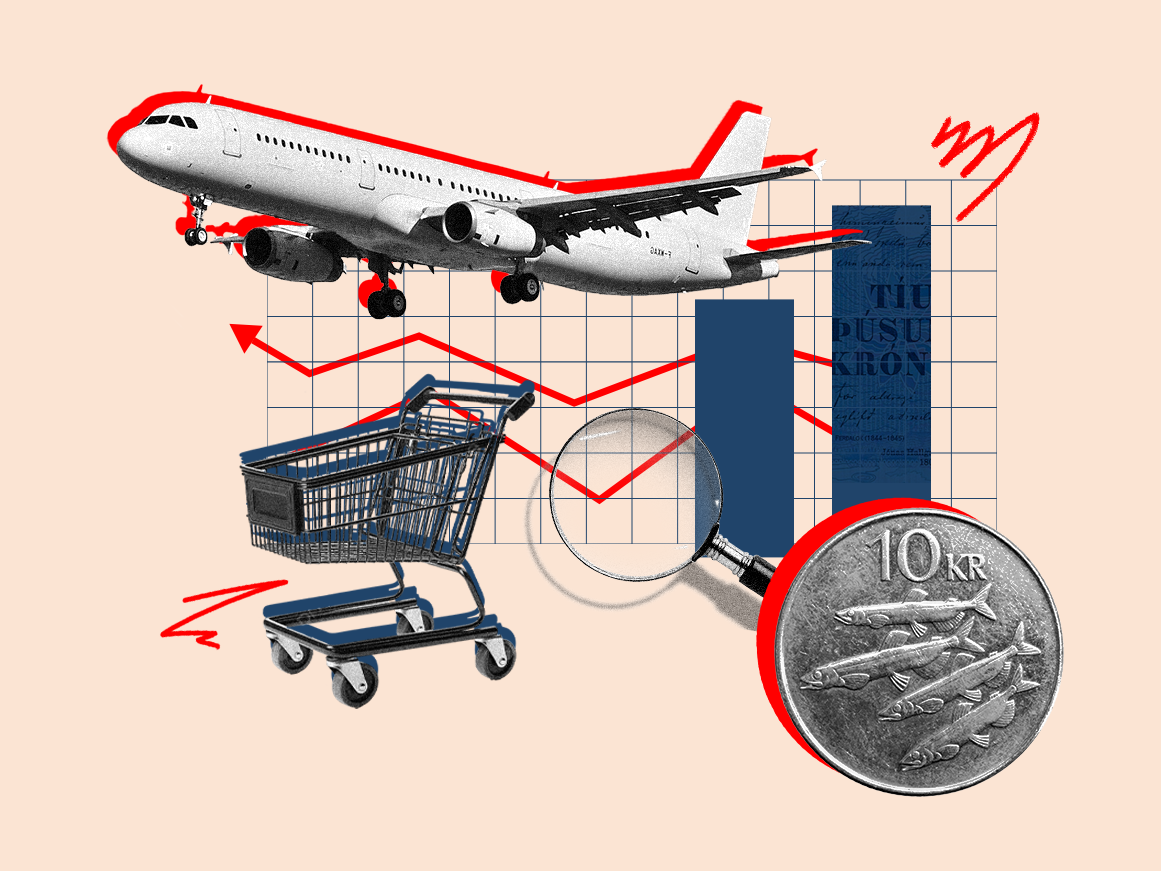Statistics Iceland estimates that economic growth was 2.6% in the first quarter of the year. This growth is mainly driven by increased investment in connection with investment in data centres, with business investment increasing by 19.6%. Housing investment continued to grow at a robust pace and was 22.4% higher than in the first quarter of last year. Private consumption grew by 2.3% and vehicle purchases have also increased following a contraction in the previous months. Consumption by Icelanders abroad has also grown in line with increased travel.
In May, the Central Bank of Iceland lowered the policy rate by 0.25 percentage points. The CBI’s key interest rate is now 7.5% after a rate-cutting cycle of the five last interest rate decisions of the Monetary Policy Committee, from a starting point of 9.25%. When presenting its decision, the MPC noted that inflation needed to trend closer to the inflation target in order for the cuts to continue.
Inflation was 3.8% in May. It has developed more or less in line with expectations, just slightly under our forecast of 3.9%. Price pressure on imported goods has declined, not least because of ISK appreciation. Airfares decreased significantly in May following a considerable increase in April, the month of Easter. We forecast 3.9% inflation in June, 3.6% in July and 3.8% in August, and then expect inflation to increase slightly again in fall. The July inflation figure will be the most recent measurement available to the MPC when it meets again in August.
Housing prices continue to rise, according to the newest data from the Housing and Construction Authority (HMS) that includes April. Housing prices have risen by just under 7.6% in the past 12 months, considerably more than domestic price levels in general. Turnover in the housing market is slower than at the beginning of the year yet still stronger than at the beginning of 2023.
Open the full text:
Disclaimer
This review and/or summary is marketing material intended for information purposes and not for business purposes. This marketing material does not contain investment advice or independent investment analysis. The legal provisions that apply to financial advice and financial analysis do not apply to this content, including the ban on transactions prior to publication.Information about the prices of domestic shares, bonds and/or indices is source from Nasdaq Iceland - the Stock Exchange. Landsbankinn’s website contains further information under each individual equity, bond class or index. Information about the prices of non-domestic financial instruments, indices and/or funds are sourced from parties Landsbankinn considers reliable. Past returns are not an indication of future returns.
Information about the past returns of Landsbréf funds is based on information from Landsbréf. Detailed information about the historic performance of individual funds is available on Landsbankinn’s website, including on returns for the past 5 years. Information about the past performance of funds show nominal returns, unless otherwise stated. If results are based on foreign currencies, returns may increase or decrease as a result of currency fluctuations. Past returns are not necessarily an indication of future returns.
Securities transactions involve risk and readers are encouraged to familiarise themselves with the Risk Description for Trading in Financial Instruments and Landsbankinn’s Conflict of Interest Policy, available on Landsbankinn’s website.
Landsbankinn is licensed to operate as a commercial bank in accordance with Act No. 161/2002, on Financial Undertakings, and is subject to supervision by the Financial Supervisory Authority of the Central Bank of Iceland (https://www.cb.is/financial-supervision/)










